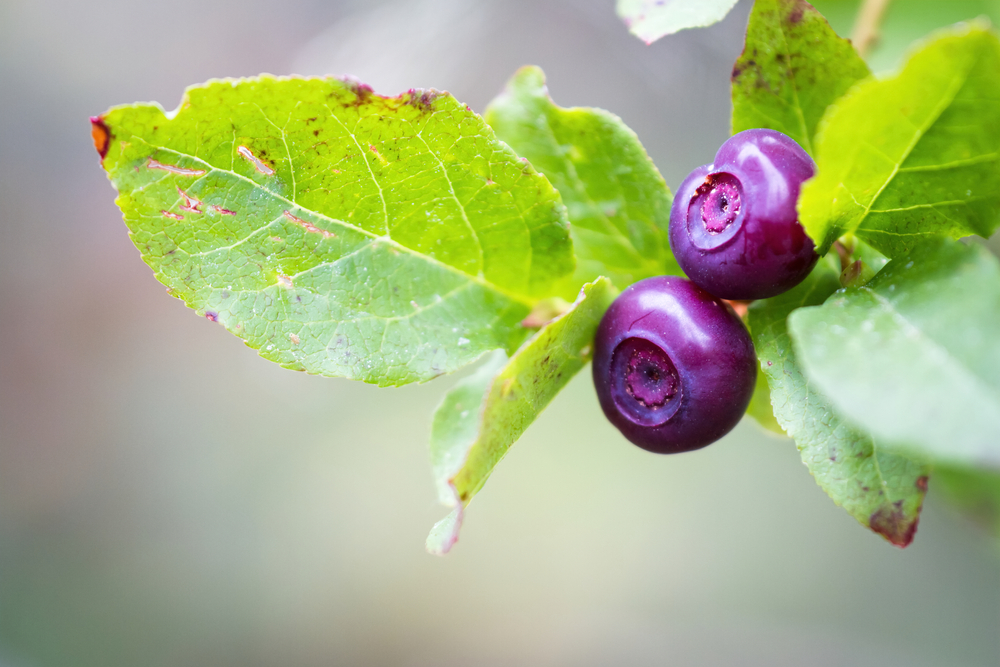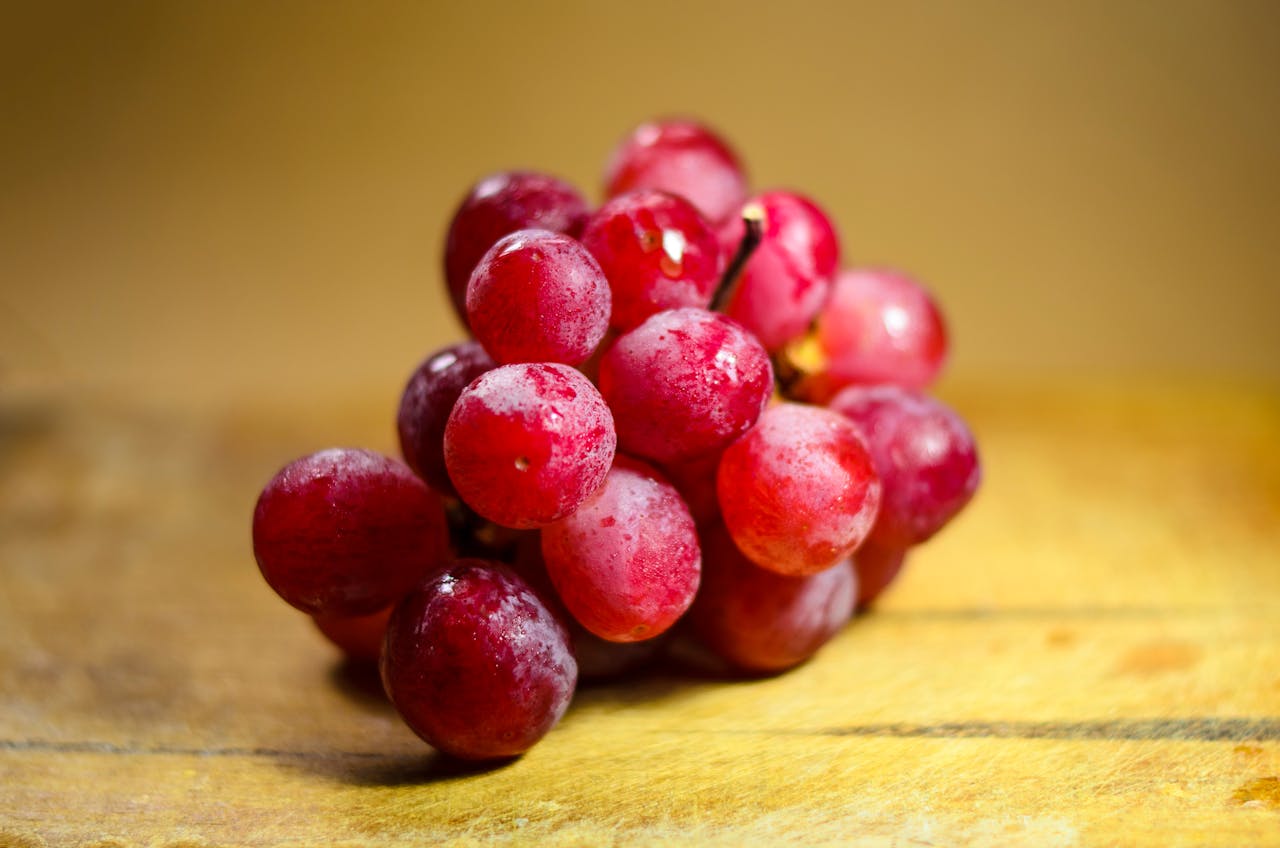In this article
View 3 More +If you’re a dog parent, you know that one of the most important things about caring for your dog is providing them with adequate nutrition. Dogs are omnivores and can eat meat, veggies, and fruits, which raises questions about dog-safe foods.
So, can dogs have huckleberries? Yes, they can. Huckleberries are not toxic to dogs, which is why our four-legged friends can consume them in moderation. However, there are several things that you should know before offering this fruit to your dog.

What Are Huckleberries?
Huckleberries are small berries that are similar to blueberries in appearance. However, the huckleberry is not one plant. Instead, the term describes several edible berry species that grow in North America and belong to the Ericaceae family.
Huckleberries can come in many colors, from red to blue to black, and people use them to make jams, pies, and other sweet delicacies.
Should Dogs Eat Huckleberries? Risks & Safety Tips
Dogs can eat Huckelberries as they are not toxic and contain essential nutrients, such as vitamin A and antioxidants, that can positively affect your dog’s immune system, vision, coat, and skin. While these berries are safe for dogs to consume, your dog should only eat them in moderation; otherwise, several health issues can occur.

1. Gastrointestinal Problems
Due to their sugar content, consuming large numbers of huckleberries can lead to gastrointestinal problems, including diarrhea, vomiting, stomach upset, and abdominal pain. Huckleberries also contain seeds, which can cause an intestinal blockage in your dog, especially if eaten in large quantities.
2. Choking
Although the berries are small, they contain seeds that can cause choking in your dog. Always monitor your dog when they’re eating huckleberries, or look for other seedless fruits that your canine can eat.
3. Cyanide Poisoning
While huckleberries are not toxic to dogs, they can still experience health problems when consuming the berries, such as cyanide poisoning. The seeds inside huckleberries contain trace amounts of cyanide that can be deadly if a dog eats them in large amounts. Cyanide poisoning is much more common in dogs eating stone fruits rather than huckleberries.
Depending on the amount of cyanide ingested, your dog could experience the following signs:
- Excessive salivation
- Rapid breathing
- Difficulty breathing
- Convulsions
- Paralysis
- Red gums
- Suffocation
Cyanide toxicity is a severe medical problem, so immediately contact your veterinarian if you notice any of these signs in your dog. Keep in mind that your dog would have to eat a very large amount of huckleberries to experience cyanide poisoning, but it’s on the list since it is a potential issue.
If you need to speak with a vet but can't get to one, head over to PangoVet. It's our online service where you can talk to a vet online and get the advice you need for your pet — all at an affordable price!
4. Eating the Wrong Berries
Be very careful when offering huckleberries to your dog; other berry species look similar to huckleberries but are toxic to dogs. Always ensure that the berries you offer your dog are indeed huckleberries and not a toxic species.

What Should a Dog’s Diet Look Like?
Dogs can consume various omnivorous foods, including veggies, fruits, and plants. For a dog to prosper and develop healthy and strong, their diet needs to include six basic nutrients:
- Water
- Proteins
- Fats
- Carbohydrates
- Minerals
- Vitamins
Your dog’s diet should also be age-appropriate and contain high-quality ingredients.


Frequently Asked Questions
Which Berries Are Unsafe for Dog Consumption?
Many berries are safe for dogs, but others can be harmful. Here’s a list of a few of the unsafe berries:
- Grapes
- Holly berries
- Juniper berries
- Baneberries
- Mistletoe berries
- Poke berries

Which Berries Are Safe for Dog Consumption?
While dogs don’t necessarily need to eat fruit, consuming berries now and then can have a positive effect on their health. However, you should know which berries are safe for dog consumption in moderation. These include:
All these berries can provide your dog with the necessary vitamins, antioxidants, and minerals and boost their immune system.

Final Thoughts
Dogs can eat huckleberries in moderation. They can help your dog and positively impact their health when served occasionally. However, consuming too many can cause several health problems, which is why you should be cautious when offering huckleberries as treats to your four-legged companion and start by talking to your veterinarian.
Featured Image Credit: Kyle J Jensen, Shutterstock






















